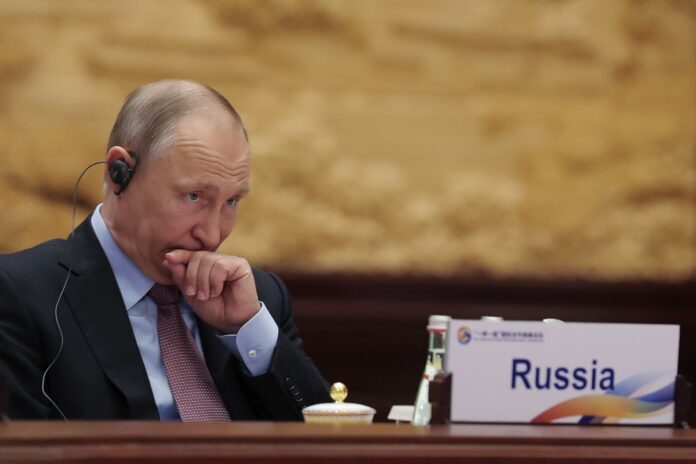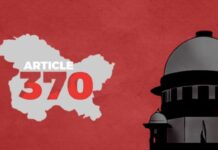Artificial Intelligence (AI) and the connected emerging technologies are shaping the economies, militaries as well as the geopolitics of the world. It is no surprise, therefore, that country after country is joining the race to produce, acquire, develop and deploy artificial intelligence at the soonest possible.
By Arvind Gupta
The US, Europe, Japan and China are the front-runners in the race for AI. India has also declared its ambition to become an artificial intelligence hub. President Putin has made the deployment of artificial intelligence as a top priority in Russia’s national development goals.
In October 2019, Russia adopted a detailed National Strategy for the Development of Artificial Intelligence Through 2030. The document deals with research, design and development of hardware and software needed for AI technologies, training of personnel and specialists, creation of integrated security systems, and development of AI products and services. It has a detailed provision for increasing the availability and quality of data required for the development of artificial intelligence technologies.
The government is teaming up with Russian corporates to implement the AI strategy. Putin’s close confidant, German Gref, the president of Russia’s largest bank Sberbank is the brain behind the strategy. An AI Alliance of Russian corporates led by Sberbank and including the internet giants Yandex, Mail.ru Group, and Gazprom Neft Energy, MTS, Russian Direct Investment Fund, has been formed. It has prepared a road map for the development and adoption of AI technologies.
Ten sectors in the economic, social and public administration spheres have been identified for digital transformation. On Dec 30 2020, President Putin issued necessary instructions to the government and regional entities in this regard.
A key aspect of the development of AI in Russia is to make indigenous AI software and applications and reduce foreign dependence. Several steps are being taken to incentivize the indigenous development of AI technologies.
The education system will be modified to groom the children from a very young age in information sciences. School curricula will establish synergetic teaching of mathematics and information sciences. Specialised industrial universities will introduce courses on AI in their curricula. Particular attention will be paid to improve and deepen mathematics education in the country. Russia’s world-class mathematical institutes will be harnessed for this purpose.
The legislation will be tweaked to facilitate and encourage investment in indigenous AI technologies. Officials in the constituent entities of the Russian Federation have been instructed to develop and approve regional digital transformation strategies for the main industries, the social sphere and public administration.
Speaking at a well attended artificial intelligence conference held in Moscow on 4 December 2020, President Putin said that by 2021 ten percent of Russia’s medical institutions will use artificial intelligence. He pointed out that Russia already has self-driving cars, pilotless ships in inland waters. The Russian defence industry is creating unmanned submarines and ships for military use. Autonomous control systems are being tested in 15 regions.
Russia is aiming to create an ecosystem for AI technologies. According to Putin Russian private company Yandex is one of the world’s leaders in AI research, ranking among the global top five. The Imereti Valley in Southern Russia is emerging as a hub for AI technologies and future technologies. The Sirius centre in Sochi is attracting and training young talent for future technologies.
To promote indigenous and ‘sovereign development’ of strategic technologies like the AI, Russia is promoting domestic innovation and start-up companies, as well as mathematics schools.
To facilitate digital transformation of the ten key sectors, appropriate regulatory frameworks are being developed. Strict monitoring of the implementation will be carried out. Putin declared that Russia has set itself a goal of quadrupling investment in Russian software solutions in the coming decade. Incentive schemes are being rolled out to support the Russian companies. The aim is to bring private investment into domestic artificial intelligence technology and software products.
As is well known, the development of AI technologies requires data. The government is working on a draft law to provide neural network developers with competitive access to big data, including state big data, which are a true growing medium for AI technologies in some areas.
Stressing the urgency to adopt the AI technologies as soon as possible, Putin pointed out that in the past there have been cases when “large global corporations and even countries literally slept through a technological breakthrough and were swept off the historical stage overnight. I will not cite the sad examples of these countries and peoples now. There are plenty of them. And we must remember this.”
Russia is determined not to be left behind in the AI race. However, the competition is tough. China has moved far ahead, having devoted billions of Yuans in education, R&B and industry. It will not be easy for any country to catch up.
Thus Russia will have a lot of catching up to do. Presently, Russia has only three supercomputers while China has 228, the United States has 117, and Japan has 29. According to the 2019 World University Rankings, sixteen Russian universities, offering machine learning courses figure in the world’s 684 best educational institutions but only two Russian universities—Moscow State University and St. Petersburg’s ITMO (Information Technologies, Mechanics, and Optics)—were in the top one hundred. According to TRAXCN statistics, Russia currently has 168 AI start-ups, compared with 6,903 in the United States and 1,013 in China. According to Microsoft, 30 percent of Russian companies actively implement AI as compared to the global average of 22.3 percent.
While the claims are hard to verify, the top Russian leaders have time and again hinted that Russia has already made significant progress in developing autonomous weapon systems based on AI technologies.
Given AI’s disruptive and transformative potential, Russia does not want to miss out on the new technological revolution. Putin has promised ‘billions of rubles’ for the digital transformation of public administration and public services to an e-format. According to Putin, the city of Moscow has already taken the lead in the deployment of AI technologies. AI algorithms are being used there in healthcare, education, security and smart city technology.
India, like Russia, has the ambition to emerge as an AI leader. According to IT minister Ravi Shankar Prasad India has plans to build a large force of AI professionals which would manage national and global AI ecosystems. The two counties can join hands. They have science technology agreements as well as an agreement on information security which can be utilised to build a partnership in artificial intelligence technologies.
This article first appeared in www.vifindia.org and it belongs to them. The author is a research associate with VIF.












